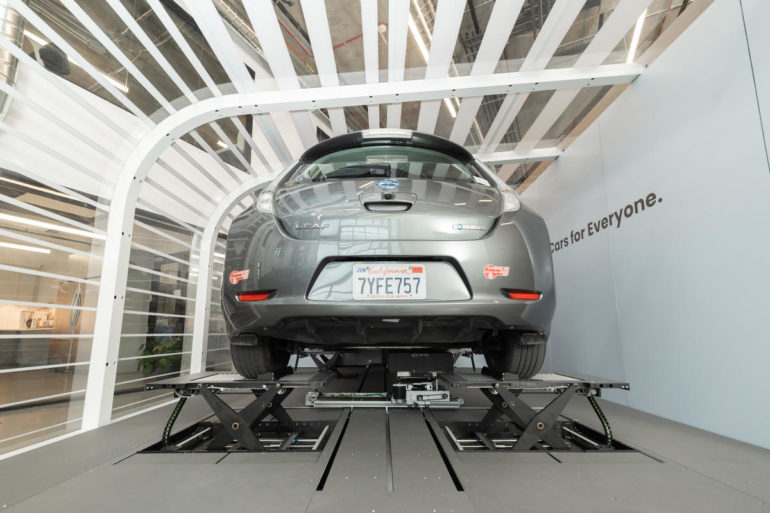Internal combustion engine (ICE) automobiles have a big advantage over EVs in one crucial area: Refueling occurs quickly, getting cars back on the road in a matter of minutes. But a new push for modular EV batteries could provide a solution, particularly in urban areas.
A company called Ample has developed Modular Battery Swapping technology that it claims can deliver a full charge in under 10 minutes, significantly faster than traditional charging and nearly on par with ICE gas-ups. The technology is EV agnostic and designed to be deployed quickly in metropolitan areas.
“Our system is designed for rapid deployment, making it possible to equip an entire metropolitan area with a ubiquitous network in a matter of weeks, while delivering energy at a cost as cheap as gasoline,” Ample’s CoFounders Khaled Hassounah and John de Souza write in a recent announcement. “Ample has the additional benefit of being able to capture wind and solar power when it’s available, and then dispense that energy to EVs when needed.”
Ample is keying in on a major weakness of the current charging paradigm. Currently, it’s not profitable to operate a charging infrastructure without government subsidies. Metro fleets that have high-utilization are also poorly suited to long charge times.
Ample’s solution is an autonomous battery swapping station. A car pulls in and the station removes depleted batteries and replaces them with recharged ones. The old batteries are recharged for reuse by another vehicle. Ample’s batteries are designed to work like Lego’s, meaning they can be used for vehicles and battery banks of varying sizes.
Of course, for the scheme to work the company will need ample buy-in from fleet owners. Ample is targeting regional municipal partners to start.
“We are starting with electrifying fleets which will accelerate the deployment of a wide-scale network that can support consumers too. Ample is currently being deployed regionally in the Bay Area, where we are actively working with a wide range of ride-sharing, last-mile delivery, and municipal fleet partners,” write Hassounah and Souza.
